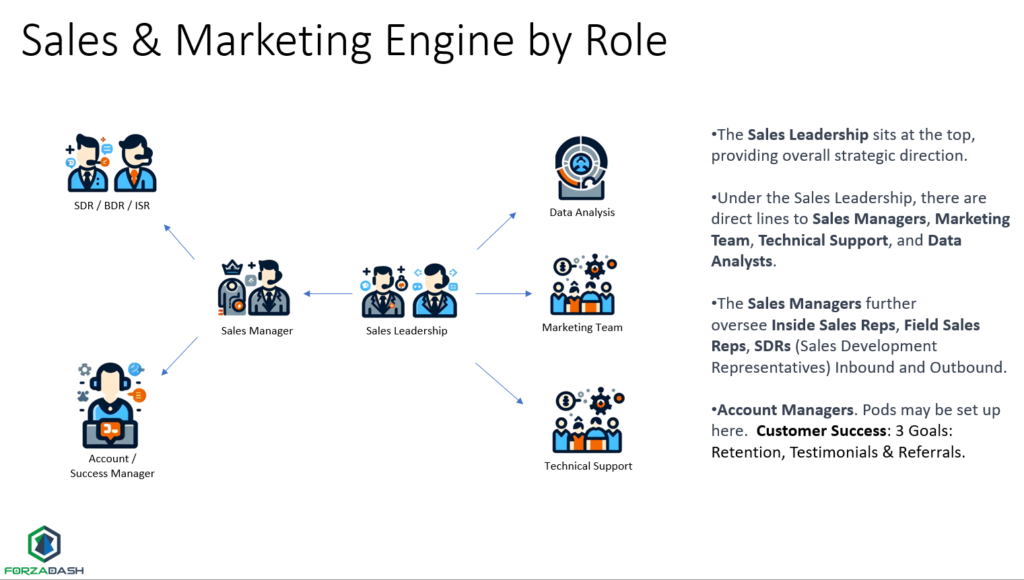Managed Service Providers (MSPs) operate in a competitive and rapidly evolving industry. To stay ahead, MSPs must not only excel in delivering top-notch services but also in effectively selling them. A well-structured sales engine is crucial for sustainable growth and success. Let’s explore how MSPs can utilize a sales engine model to maximize their potential.
1. The Cornerstone of Success: Sales Leadership At the heart of a thriving MSP sales engine is visionary Sales Leadership. This role is not just about setting targets; it’s about understanding the unique challenges and opportunities in the MSP landscape and developing a strategic sales plan that aligns with your company’s strengths and market demands. Sales leaders in an MSP should focus on building a scalable sales process that accommodates the recurring revenue model typical of MSPs.
2. Navigating the Course: Sales Managers Sales Managers in an MSP play a critical role in translating strategy into action. They should be adept at managing both inside and field sales teams, ensuring that they are motivated, well-trained, and aligned with the company’s goals. Sales Managers need to be skilled in CRM software to track performance and identify areas for improvement.
3. The Frontline Warriors: Inside and Field Sales Representatives In the MSP world, Inside Sales Representatives are key to nurturing leads and closing deals through remote interactions. They must be knowledgeable about the MSP’s offerings and skilled in virtual sales techniques. Field Sales Representatives, on the other hand, are the face of the MSP in the field. They should be adept at building relationships, understanding client needs, and presenting tailored solutions.
4. Fueling the Pipeline: Sales Development Representatives (SDRs) SDRs are vital for an MSP’s sales engine, responsible for generating and qualifying new leads. They should be proficient in identifying potential clients who could benefit from the MSP’s services and initiating the first steps in the sales process.

5. Ensuring Customer Success: Account Managers For MSPs, Account Managers are crucial for maintaining long-term client relationships. They should focus on understanding client needs, ensuring service delivery meets expectations, and identifying opportunities for upselling or cross-selling.
6. The Voice of the Company: Marketing Team A cohesive relationship between the sales and marketing teams is essential for MSPs. The Marketing Team should focus on lead generation activities that complement the sales team’s efforts, such as content marketing, SEO, and digital campaigns, tailored to the MSP market.
7. Solving Complex Problems: Technical Support/Sales Engineers Given the technical nature of MSP services, having Technical Support or Sales Engineers collaborate with the sales team can significantly enhance the sales process. They can assist in addressing complex technical queries and demonstrating the technical prowess of the MSP’s services.
8. Harnessing Data for Strategic Decisions: Data Analysts Data Analysts play a pivotal role in an MSP’s sales engine by providing insights that guide strategic decisions. They analyze sales data, track performance metrics, and offer actionable insights to optimize the sales process.
For MSPs, building and maintaining a robust sales engine is essential for growth and sustainability. Each component of the sales engine must work in harmony, guided by a strategy that understands the MSP landscape. By investing in each role and ensuring they function cohesively, MSPs can build a sales engine that not only drives revenue but also solidifies their position in the market as a trusted and efficient service provider.

